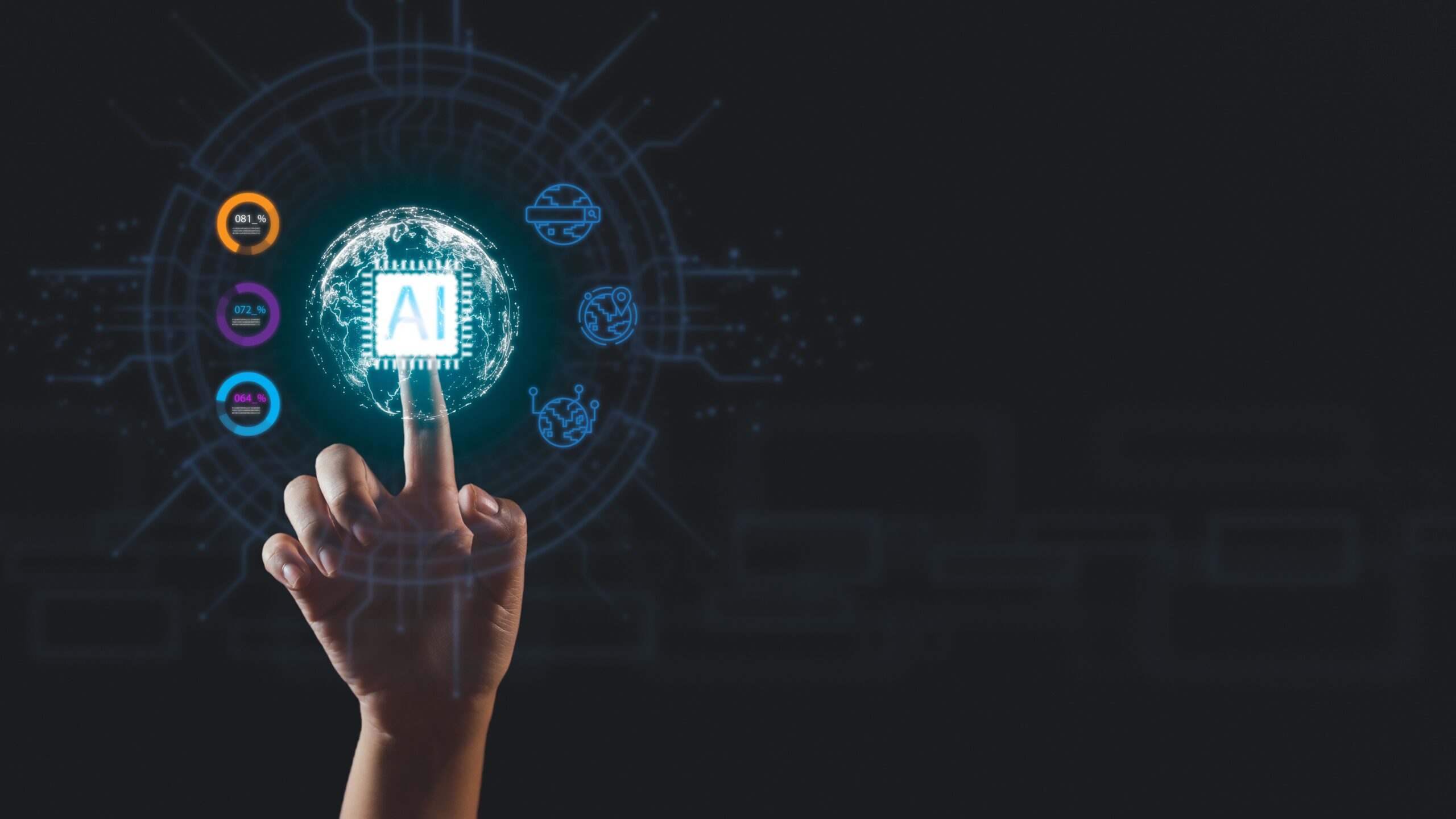Artificial intelligence (AI) is increasingly playing a role in shaping the opportunities for digital marketers and companies like MGG Digital Consulting who specialize in lead generation strategies. No longer confined to theoretical discussions or niche applications, AI tools such as ChatGPT 4 and AI chatbots online are providing an avenue that businesses could use to create more targeted content, personalize customer interactions, and gather actionable insights, all while working within the framework of their resources and goals.
At MGG Digital Consulting, we view AI as a powerful tool that, when implemented strategically, has the potential to complement human creativity and decision-making. Rather than replacing traditional methods, Generative AI has the capacity to help speed up research, assist in creating customer-facing content, and help organize digital marketing or lead generation ideas into implementable strategies. It can also help businesses enhance their operational efforts by delivering data-driven insights and automating repetitive tasks. However, leveraging these capabilities requires a careful balance between innovation and authenticity, as well as a deep understanding of the challenges that come with adopting AI tools, or any new technology for that matter.
AI: Making Basic Marketing Tasks More Efficient
For now, we know that when it comes to the more time-consuming aspects of marketing – email campaigns, blog, personalized ad copy, and general customer inquiries – artificial intelligence has been able to help speed processes like outlining, drafting, and even crafting a first draft. By processing and analyzing large amounts of data, AI tools such as ChatGPT can provide marketers with actionable insights, not just on content topics but relevant trends that they can use in their strategic planning and innovative creation. One study from McKinsey highlights that businesses adopting AI in marketing have seen up to a 20-30% increase in campaign efficiency, largely due to the automation of low-value tasks and the improved targeting of high-value audiences.
The rise of AI chatbots online is another example of how AI can enhance marketing operations. These chatbots are enabling businesses to offer real-time, round-the-clock support to customers, addressing everything from answering FAQs to nurturing sales leads. A recent report from ComTIA found that 33% of firms in the IT industry are integrating AI into some or most of their business workflows. Similarly, Forbes Advisor surveyed business owners and found anywhere from 24 – 56% of them currently or plan to use AI in some form of capacity, including in areas like customer service, cybersecurity or fraud, inventory management, content production, accounting, and supply chain operations. These figures are expected to grow significantly. Unlike traditional customer service models, chatbots powered by natural language processing can handle complex interactions, delivering relevant and timely responses. Businesses can program these bots to provide personalized experiences based on individual user behaviours and preferences, contributing to more meaningful engagement.
For managing lead generation to lead nurturing, AI tools can analyze user data to identify trends and patterns that would be impossible to uncover manually. This data-driven approach could help businesses segment their audiences more effectively and design campaigns that resonate on a deeper level, particularly in a customer relationship management tool like Hubspot, where AI can analyze customer behavioural patterns to assess their likelihood of making a purchase.
In essence, AI is providing businesses with a framework for optimizing their marketing efforts, empowering them to operate with greater agility and precision. While the technology is not without its limitations, its current capabilities already demonstrate its potential to reshape how companies approach content creation, customer engagement, and data analysis.

Challenges in Adopting Artificial Intelligence in Digital Marketing
While the advantages of AI and tools like ChatGPT 4 are impressive, integrating these technologies into marketing strategies brings its own set of challenges. The implementation process requires careful consideration, particularly when ensuring accuracy, maintaining ethical standards, and navigating complex systems.
Ensuring Accuracy and Reliability
The effectiveness of AI-generated outputs depends heavily on the quality of the data they process. If the underlying data is flawed, outdated, or biased, the results can be inaccurate, generic, or fail to align with a brand’s voice. For example, while AI tools such as Open AI’s ChatGPT 4 can produce large volumes of content quickly, they may struggle with capturing the emotional depth, cultural nuances, or creative storytelling that resonate with audiences. Additionally, over-reliance on AI for tasks like decision-making or content creation can dilute the human element, which is essential for building authentic connections.
Ethical Considerations in AI Adoption
The ethical use of artificial intelligence should still be a concern for marketers. Since AI often depends on large-scale data collection, businesses may need to be transparent in their practices in order to put the customer’s mind at ease. Without transparent practices, marketers risk undermining consumer trust. Moreover, inherent biases in some AI algorithms could unintentionally result in discriminatory outcomes in the brand’s content if not recognized and modified before publishing. Transparency and ethical use are vital to fostering trust in tools like AI chatbots online and other AI-driven platforms.
Complexity of System Integration
Integrating AI technologies such as Chatbot AI into existing systems might present logistical and technical challenges. Compatibility issues may arise when connecting tools to platforms like customer relationship management (CRM) software or advertising networks. Additionally, the learning curve associated with adopting AI technologies can be steep. Marketers must invest time and resources to train their teams to maximize the potential of AI tools, including AI lead generation platforms and AI detectors that help identify potential biases or inaccuracies in content. For smaller businesses, the cost of these solutions can make adoption particularly challenging.
Maintaining Brand Authenticity
While AI excels at automating processes and delivering efficiency, it often lacks the emotional intelligence required to craft deeply engaging content. The personal human touch is what creates a brand’s unique voice. Over-automation—such as relying entirely on chatbot AI for customer interactions—can alienate audiences who value genuine human engagement. Balancing automation with personal connection remains a key challenge.
Navigating Regulatory and Security Challenges
Regulations surrounding AI are evolving rapidly. As concerns around data privacy, security, and accountability continue to influence some customer behaviour, marketers must stay informed and agile to remain compliant with any new laws that could come into effect. AI chatbots and AI lead generation are not secure in and of themselves, and as such, require robust data protection strategies and programs to safeguard sensitive information and maintain consumer trust.
By addressing these challenges, businesses can integrate artificial intelligence responsibly and effectively into their marketing efforts, ensuring that tools like ChatGPT 4, AI detectors, and AI chatbots online contribute to more impactful and ethical marketing strategies.

Strategies for Overcoming AI Challenges
To effectively harness the potential of artificial intelligence (AI) while addressing its challenges, businesses need a thoughtful and strategic approach. AI is a tool with the capacity to enhance human creativity and decision-making, but it is not a replacement for human ingenuity. Tools like ChatGPT 4 and AI chatbots online can handle repetitive tasks and provide actionable insights, enabling marketers to focus on creating emotionally resonant campaigns that connect with their audiences on a deeper level.
Investing in training and development is another essential step. Marketing teams must be equipped with the skills to use tools like ChatGPT 4 and AI detectors effectively. Yes, AI detector tools like Grammerly or Scribbr are essential to make writing sound less AI generated, even if it was initially AI generated. By staying informed and skilled, teams can unlock new opportunities and drive more impactful campaigns.
Continuous monitoring and refinement of AI-generated outputs are equally vital. AI systems, including those used for content creation and customer engagement, should not be treated as “set-it-and-forget-it” solutions. Ongoing reviews of AI-driven campaigns, audience feedback, and the performance of tools like AI chatbots online can help businesses identify areas for improvement. Marketing efforts can then remain aligned with brand values and audience expectations.
These steps can help businesses, at the very least, think about adopting AI technologies like Open AI tools and Chatbot AI in a responsible way, ensuring that these innovations are in fact, enhancing marketing efforts as opposed to replacing them with bland automation.
AI and MGG Digital Consulting’s Approach to Lead Generation
It is quite common for our clients to ask us about not just our thoughts on adopting artificial intelligence (AI) technologies but also if it is suitable for them to do as such. With expertise spanning tools like ChatGPT 4, AI chatbots online, and lead generation platforms that are being enhanced with AI, our unique approach is to harness human creativity first in all our lead generation strategies. Generative AI is viewed as a tool to assist us with insights into marketing strategies, but our team decides those strategies independently of what a platform may suggest. As Google integrates Gemini, Meta integrates Llama, Open AI integrates SearchGPT, and Microsoft integrates CoPilot, our unique approach involves learning how the implementation of AI will affect our strategies.
Our focus on understanding AI is absolutely not to get it to write blogs or social media posts. We have a skilled team to do that. It is in understanding how the industry leaders of the platforms we and our clients’ online presence rely on in order to grow are integrating artificial intelligence (AI). Google’s Gemini AI, for example, is not unlike ChatGPT. As an LLM, it combines conversational capabilities with traditional search. But when a user asks Google a question in its search engine, Gemini can take over and answer the question directly, pulling from a variety of sources. This can keep the user on Google’s search page as opposed to providing different web pages that the user can navigate to for the answer. That is not to say Google does not do this, but you can see how Gemini is changing the way their search engine might operate. As our Hybrid Google Approach to lead generation balances organic SEO growth with Google Ads management, this change is an exciting yet interesting development to help us optimize our clients’ performance.
By adapting insights from AI advancements, we help clients develop strategies that ensure their business not only remains competitive but thrives as AI continues to shape how users search and engage. If you’re ready to future-proof your marketing efforts with expert guidance, MGG Digital Consulting is here to help.

AI, from ChatGPT 4 to AI lead generation, is transforming digital marketing by providing tools that enhance efficiency, creativity, and personalization. As businesses adopt these technologies, they must balance innovation with responsibility, ensuring authenticity and compliance.
The future of marketing lies in the seamless integration of AI with human creativity. At MGG Digital Consulting, we’re committed to helping businesses through this potentially new frontier, ensuring they achieve the results that are still the foundation of every successful business – a powerful lead generation engine and focused nurturing communication strategy.

